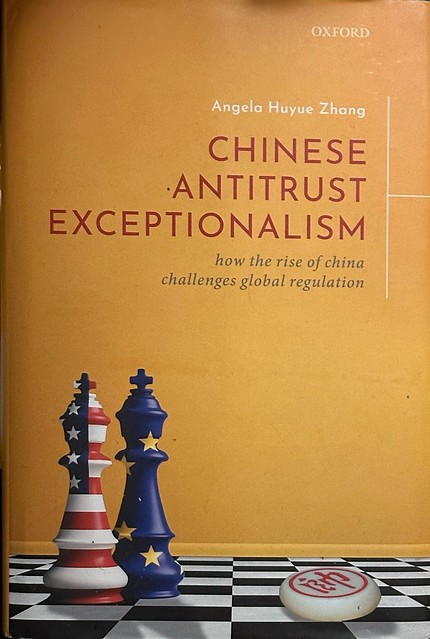2 minutes estimated reading time
Chinese Antitrust Exceptionalism by Angela Zhang sounds exceptionally dry to the uninitiated. Zhang is a senior legal academic who works at the University of Hong Kong, which until recently got a front row seat to China disputes with both the European Union and the United States. Given the recent changes in Hong Kong where she lives, we may not see as frank a book of its quality come out of Hong Kong academia again on this subject matter if it was viewed to fall under the purview of ‘state secrets’. With the new security law that has come in, definitions have been left deliberately vague and wide-reaching.
So why is Chinese Antitrust Exceptionalism of interest?
If like me, you’ve worked on brands like Qualcomm, Huawei or GSK you realise how much of an impact China’s regulatory environment can have on your client’s success. Around the time I worked on one client, they were shamed on the evening TV news and some of their staff disappeared for questioning by the authorities. They then reappeared months later looking haggard and worn out. It is new important for everything from technology to the millions of COVID deaths that happened in China due to a lack of effective vaccines.
Zhang breaks down the history of China’s antitrust regulatory environment, how it works within China’s power structures and how it differs from the US model. The rise of antitrust was as much down to bureaucratic politics of the Chinese government.
What becomes apparent is that Chinese power isn’t monolithic and that China is weaponising antitrust legislation for strategic and policy goals rather than consumer benefit.
Zhang talks about how regulatory hostage taking and public shaming was a tool of the regulatory authorities from early on.
The book then looks at foreign reactions to Chinese government from EU investigations to current US-China trade restrictions and discusses how China weaponised its regulatory frameworks making ‘hostage taking’ trans-national in nature.
Last of it’s type?
Zhang’s book won awards when it first came out in 2021, and is still valuable now given the relatively static US-China policy views. More on Chinese Antitrust Exceptionalism here. More book reviews here.
